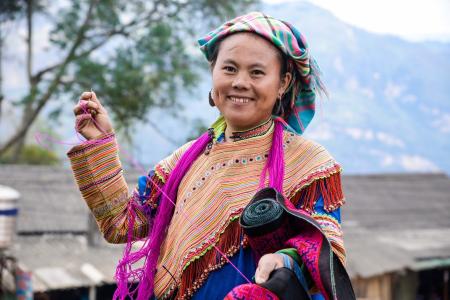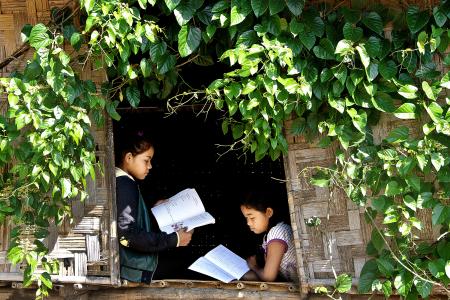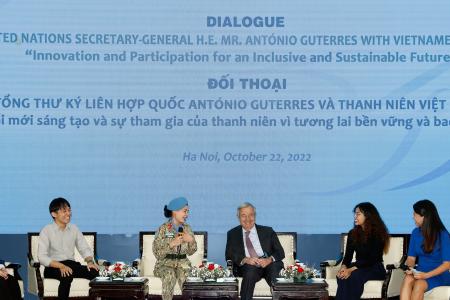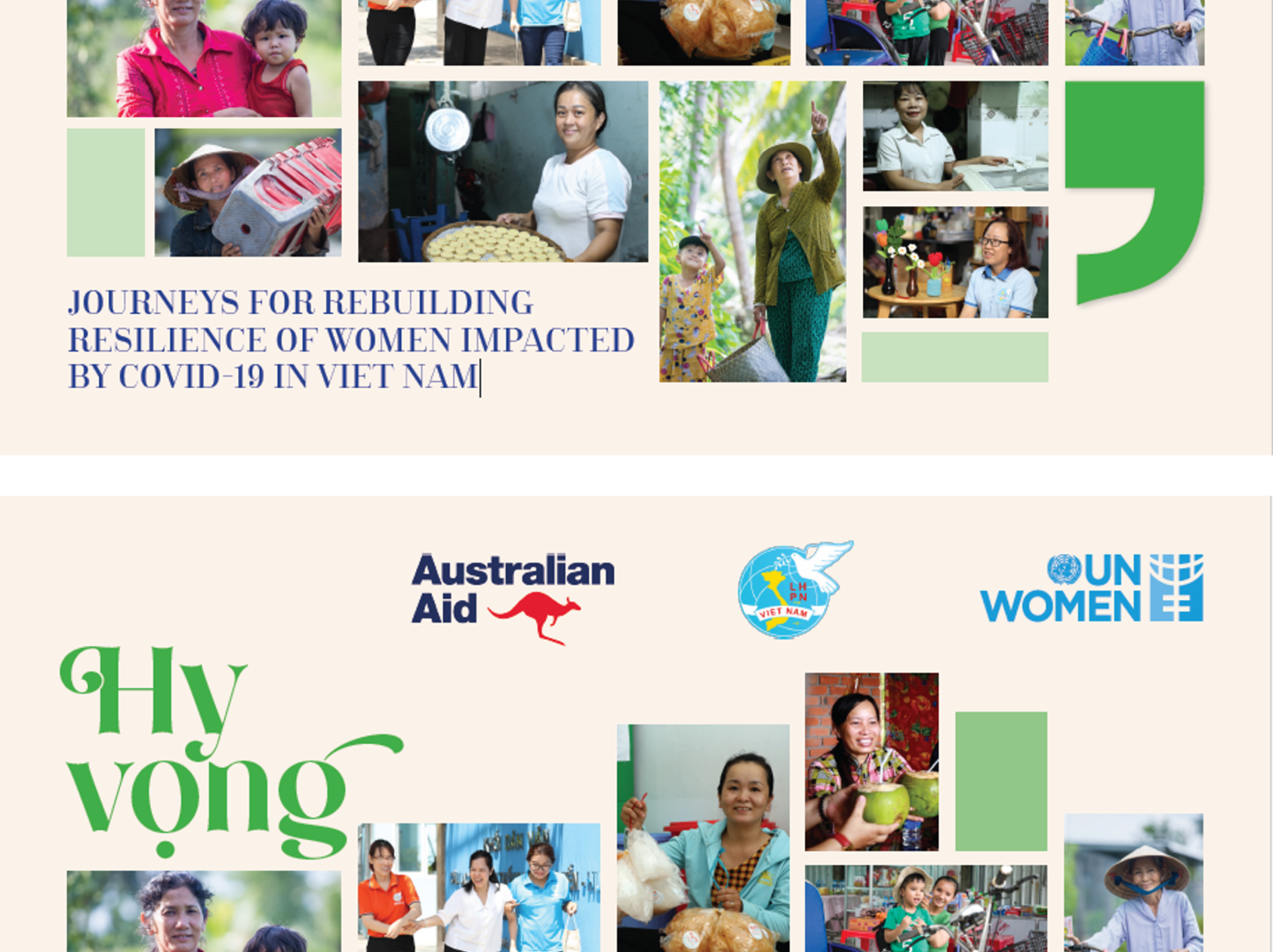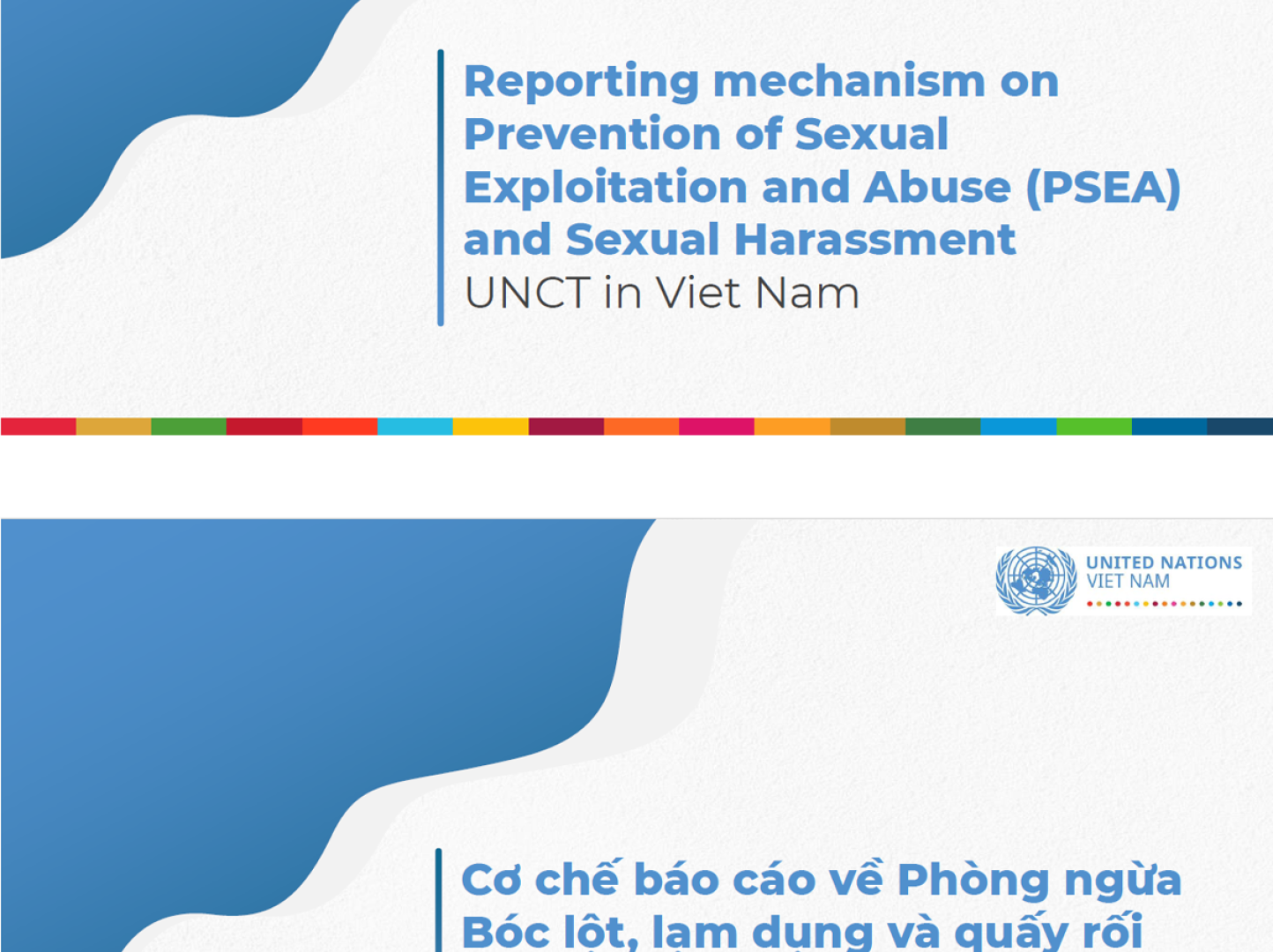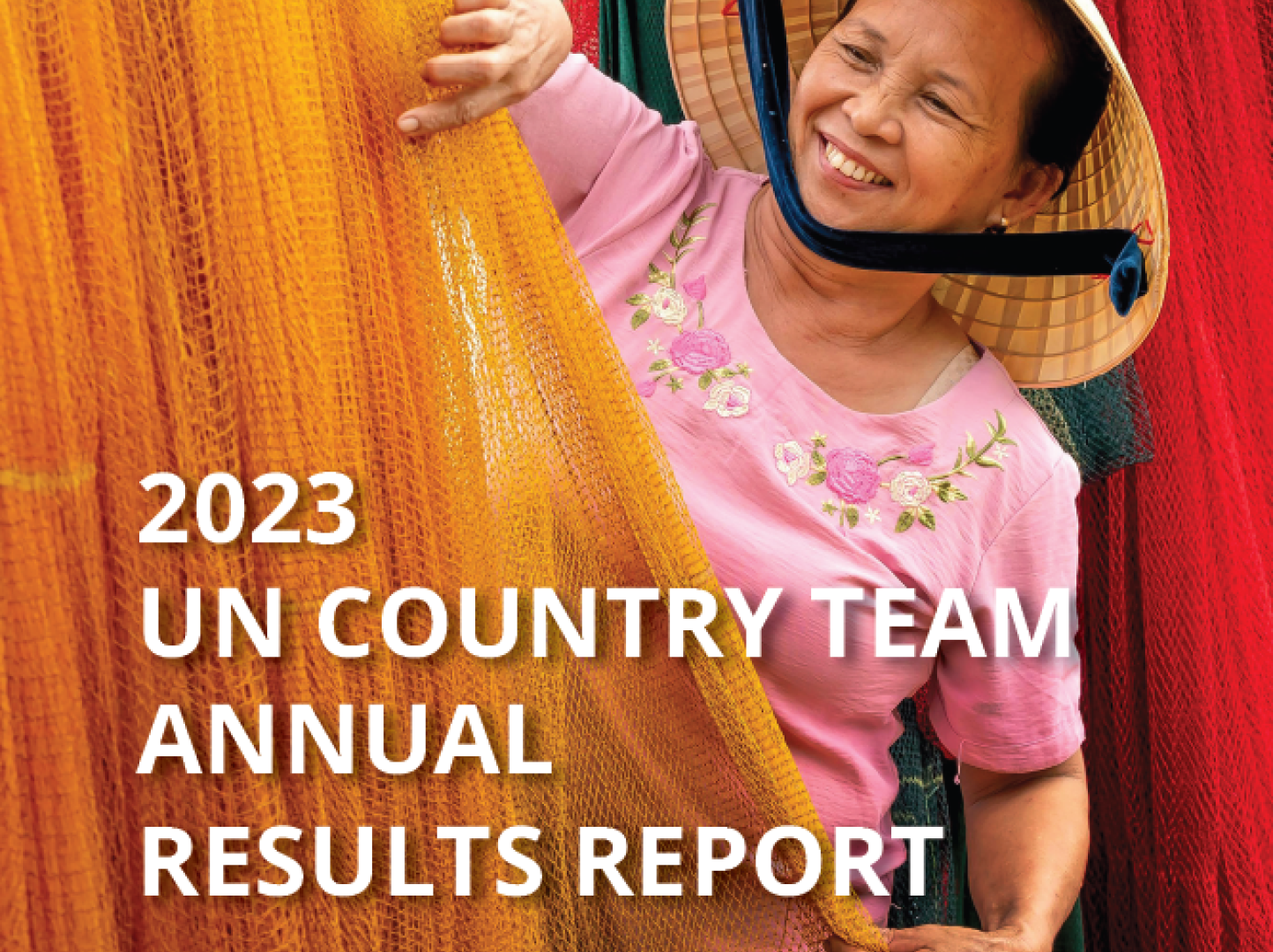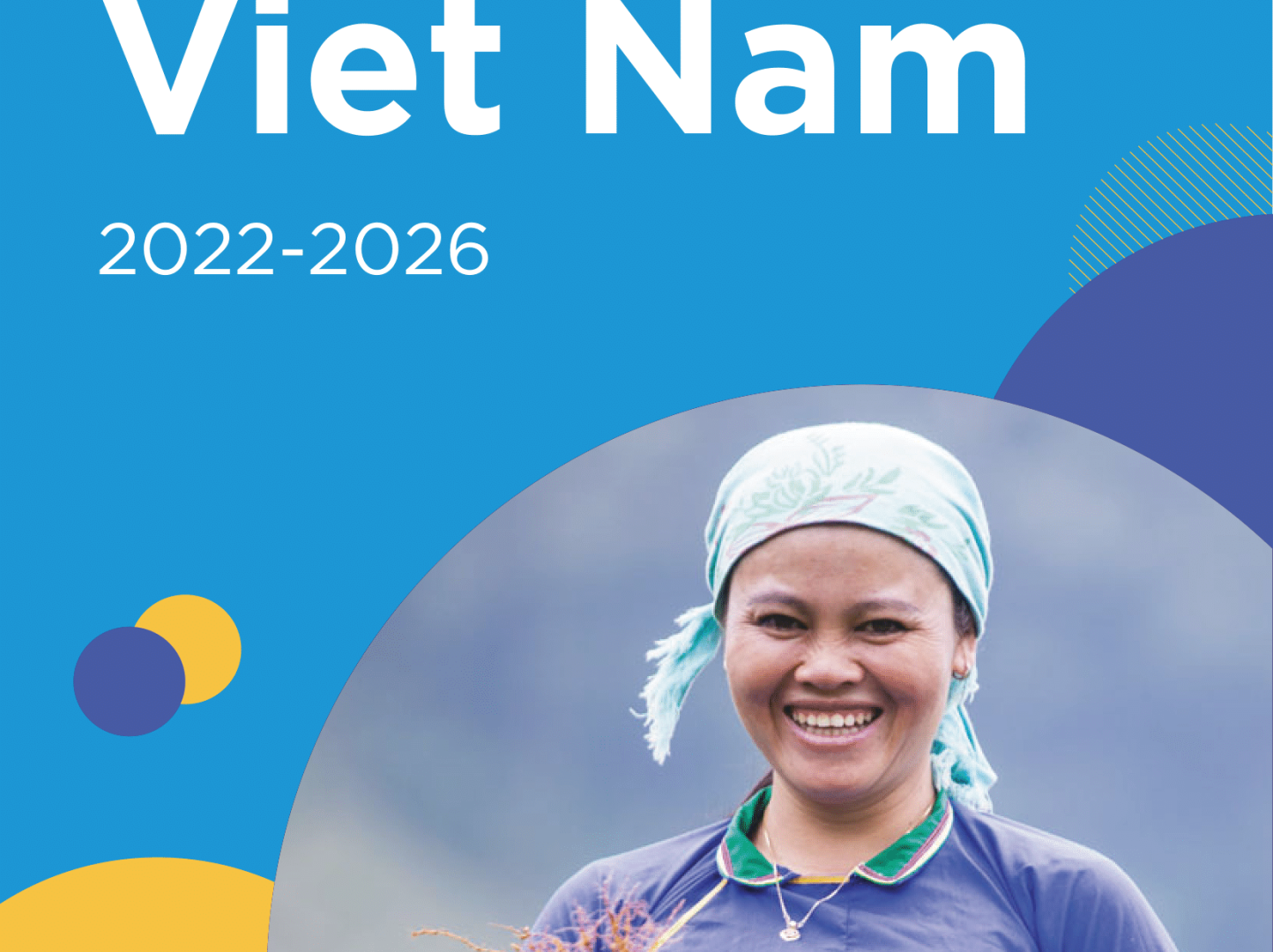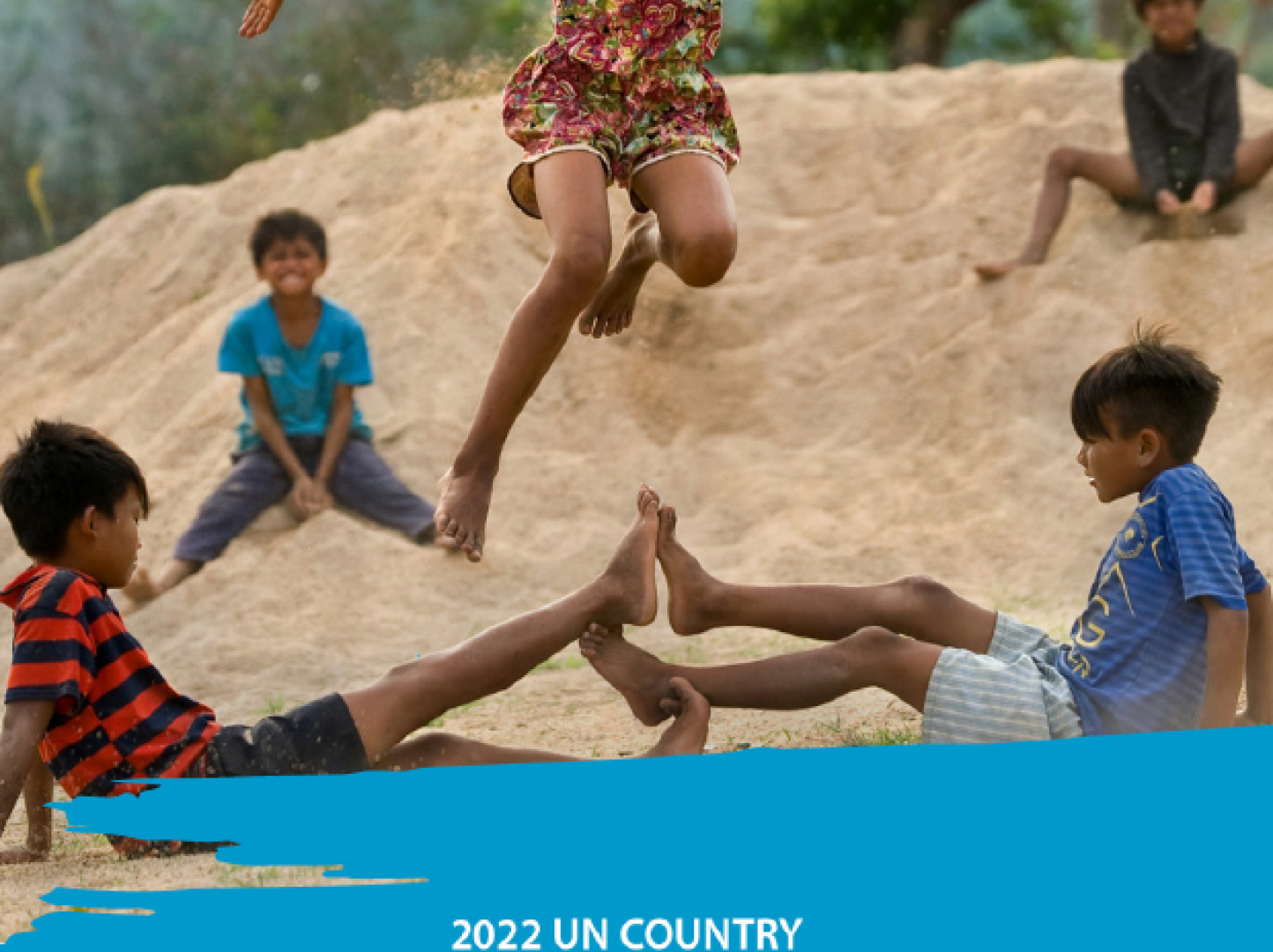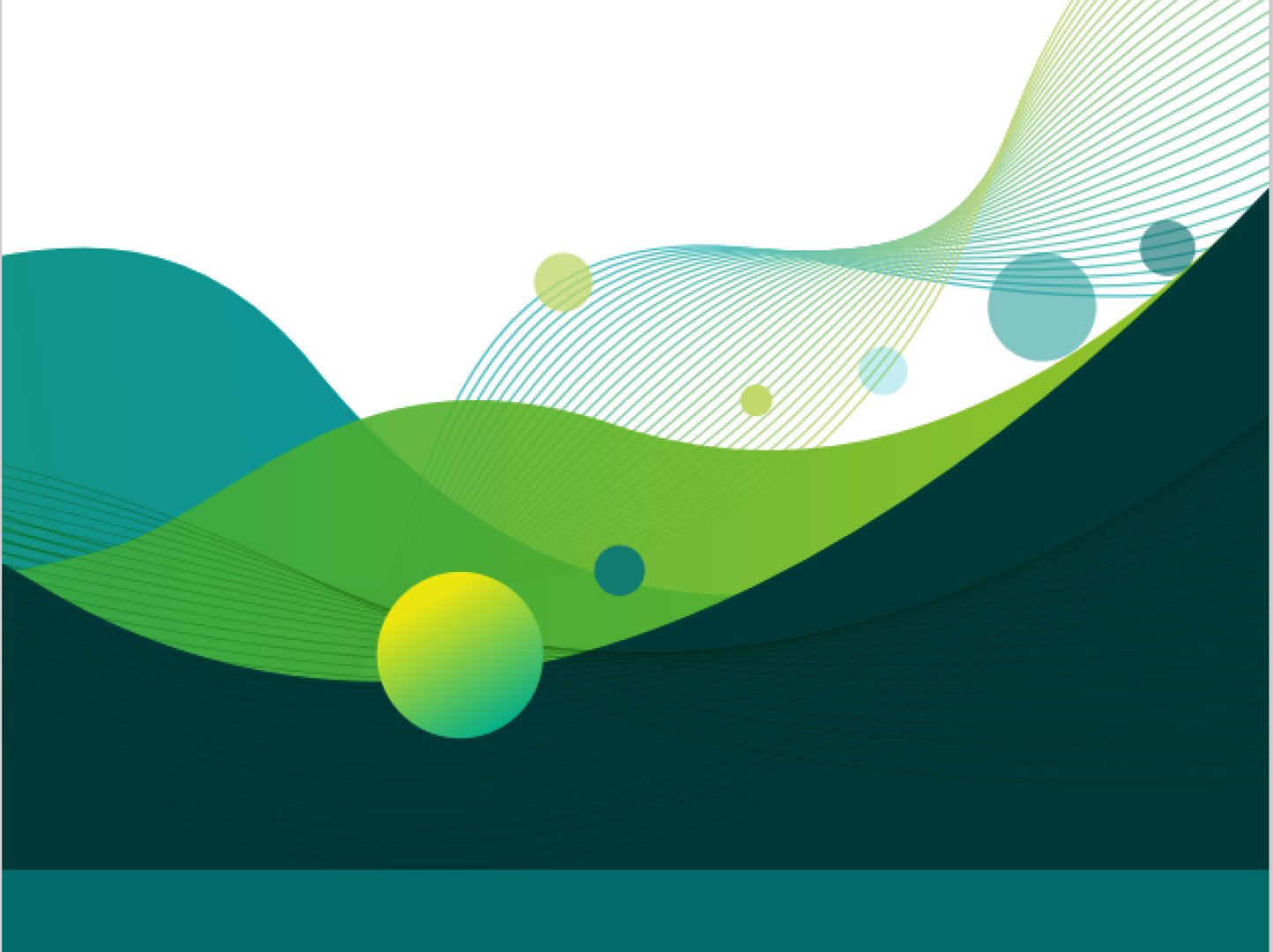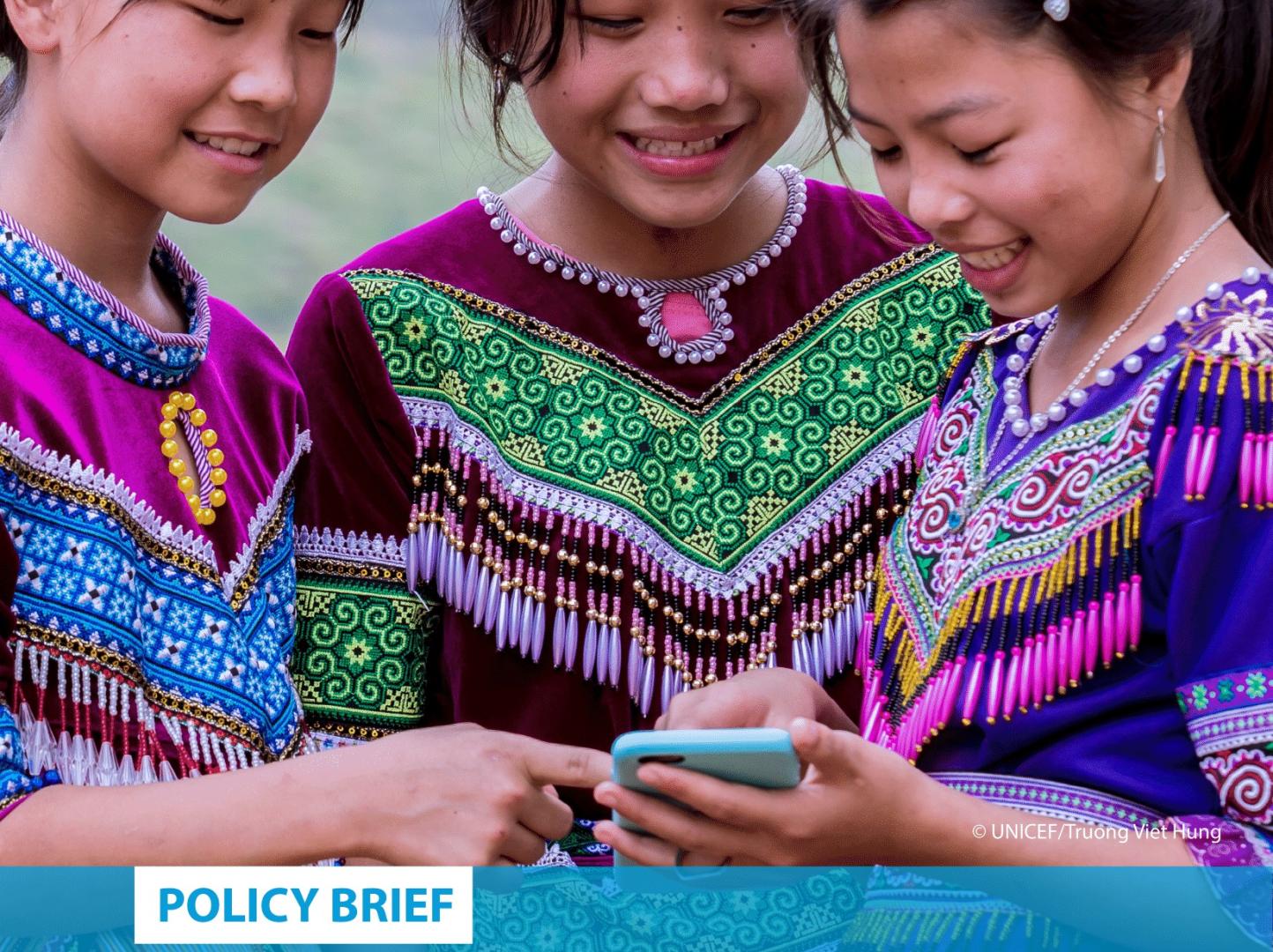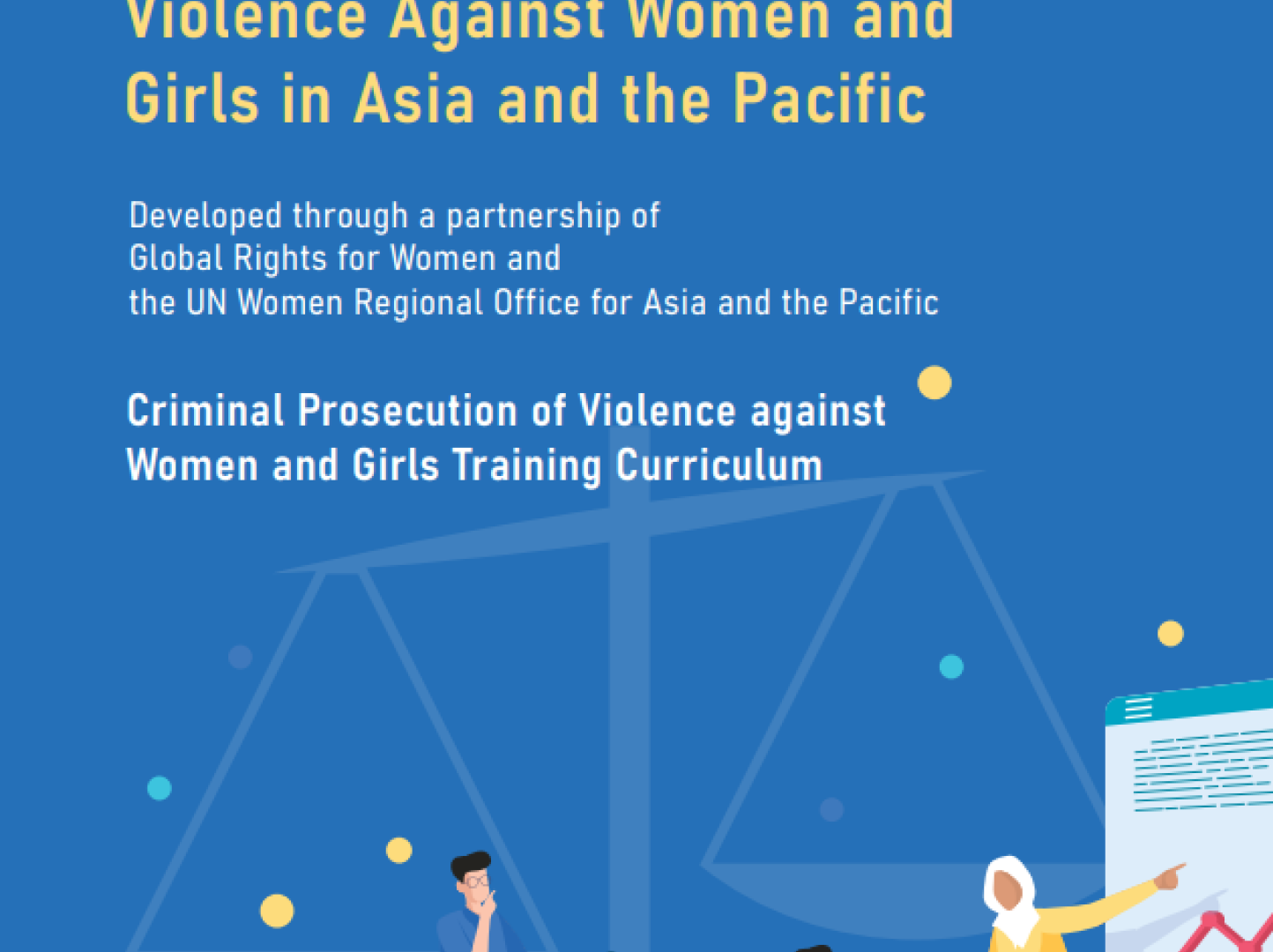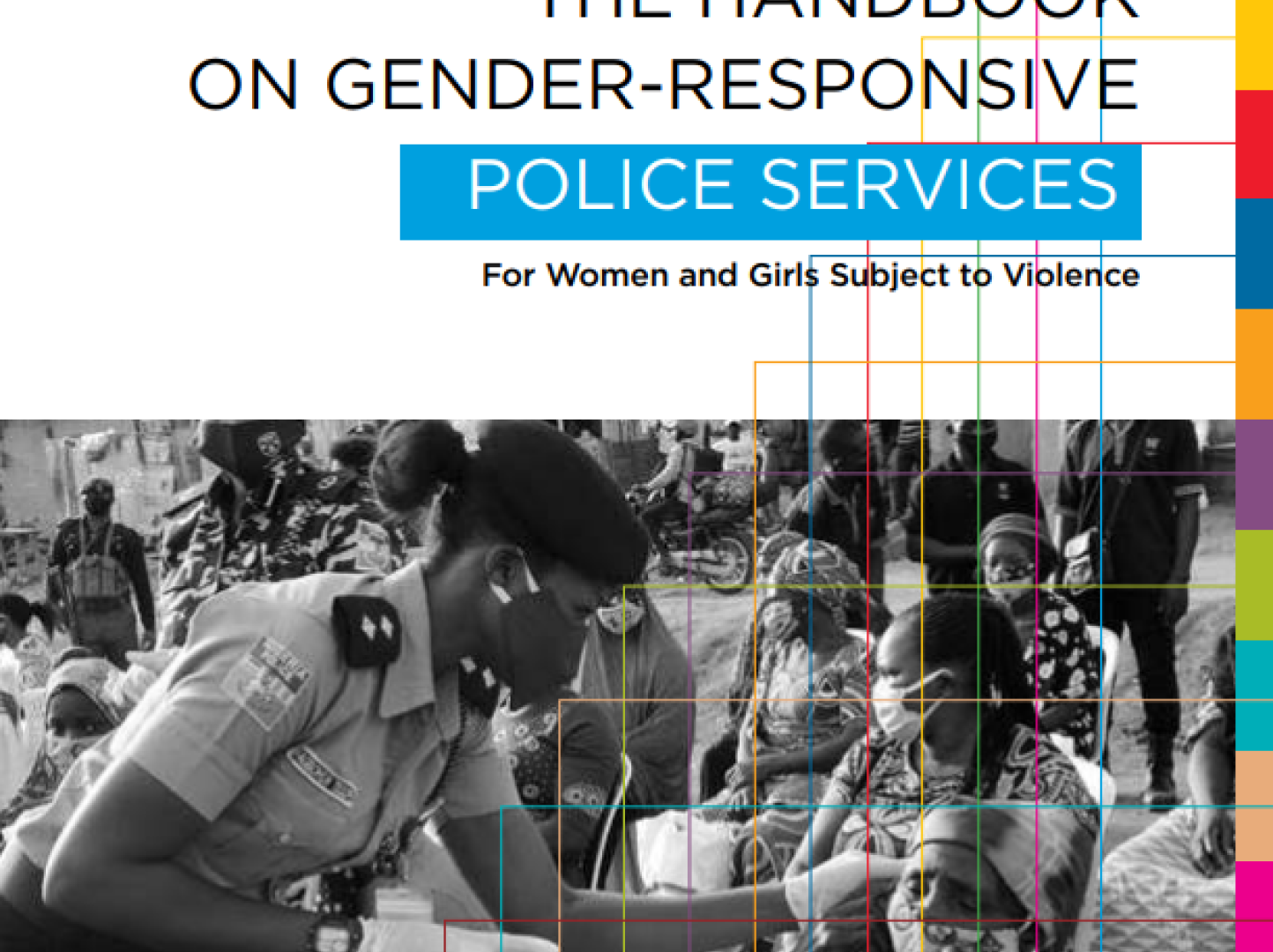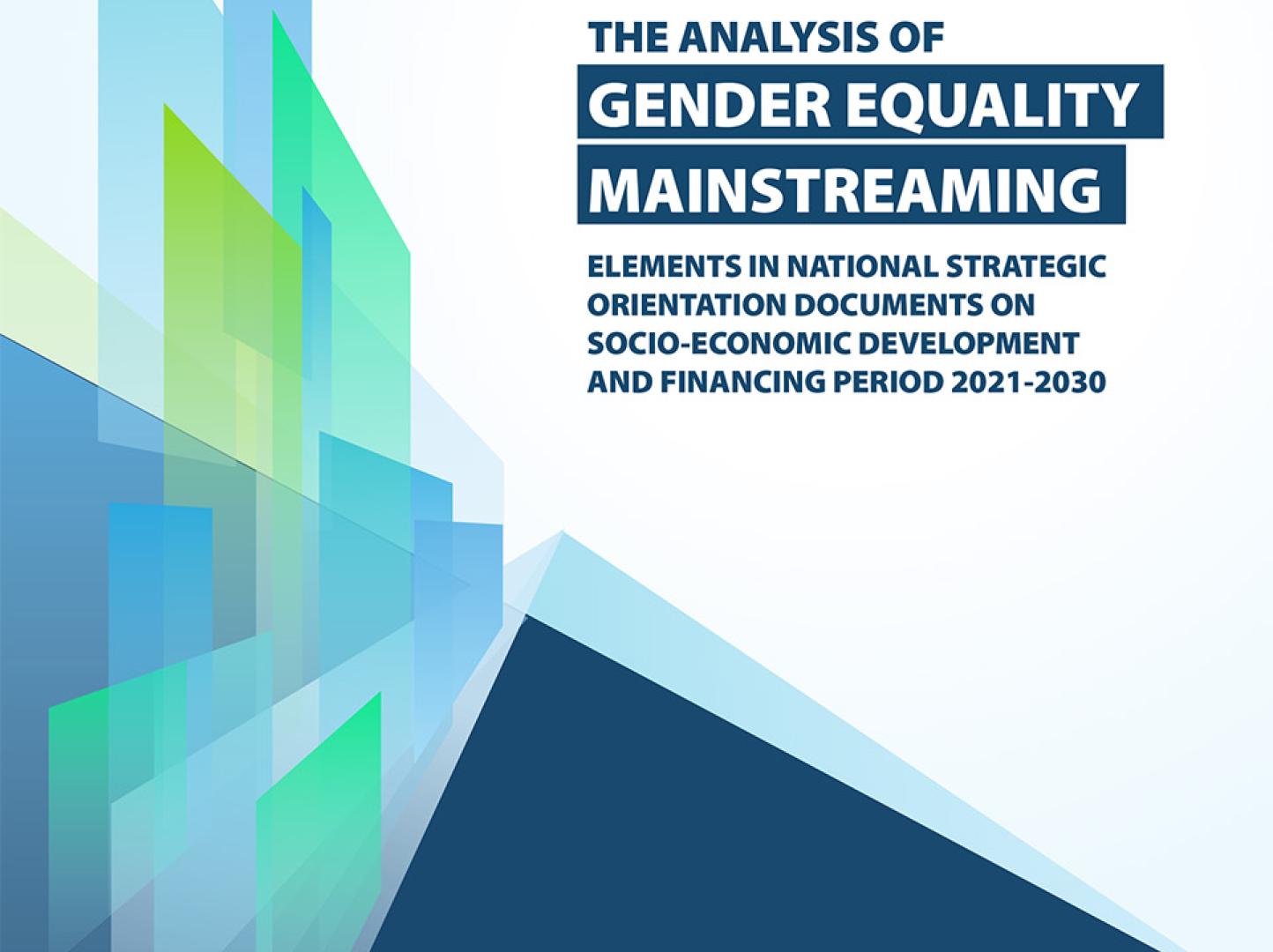Latest
Press Release
22 July 2024
Improving the awareness and capacity for women and girls in responding to challenges in cyberspace
Learn more
Speech
11 July 2024
Celebration of the International Conference on Population and Development (ICPD30) and the World Population Day
Learn more
Speech
24 June 2024
Workshop on “Knowledge Sharing on Green Taxonomy”
Learn more
Latest
The Sustainable Development Goals in Viet Nam
The Sustainable Development Goals are a global call to action to end poverty, protect the earth's environment and climate, and ensure that people everywhere can enjoy peace and prosperity. These are the goals the UN is working on in Viet Nam.
Publication
19 June 2023
2022 UN COUNTRY ANNUAL RESULTS REPORT VIET NAM
In Viet Nam, 2022 was a year of reopening after two years of closure due to COVID-19. We marked the 45th Anniversary of United Nations (UN) and Viet Nam relations with a visit from UN Secretary-General António Guterres. Celebrations reflected on Viet Nam’s remarkable development journey from a recipient of humanitarian aid to a top contributor to peacekeeping efforts in less than a generation.
Together with the Government of Viet Nam, the UN launched a new five-year “Sustainable Development Cooperation Framework for the 2022–2026 period” or CF in short. In the first year of implementation, COVID-19 response and recovery remained central.
This 2022 UN Country Results Report provides a compact description and analysis of the results that were achieved by the UN Country Team in Viet Nam in 2022, consistent with the CF, highlighting the UN’s socio-economic response to COVID-19. The report also provides information on the UN’s strengthened partnerships with different stakeholders and UN results in terms of the resources raised and spent. The report also presents the UN’s prioritized actions for 2023, the second year of the implementation of the CF.
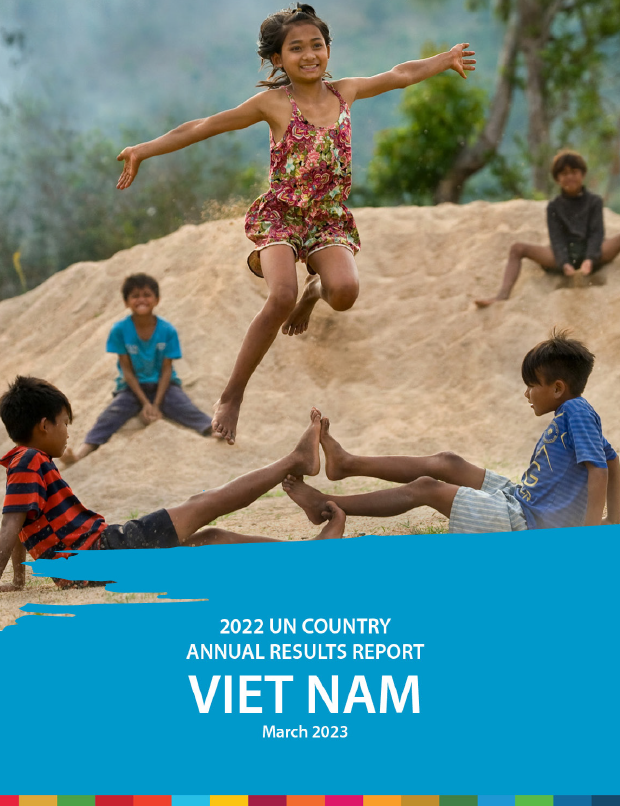
Story
20 February 2024
Prism of Love Photography Contest: Celebrating Inclusion and Empowerment
We, at the Youth Engagement Initiative, in collaboration with the Diplomatic Academy and the United National Join Disability Inclusion Program, supported by the UNPRPD fund, believe in the transformative power of photography and storytelling.
Our Prism of Love Photography Competition 2023 showcased over 66 talented storytellers capturing the joy of persons with disabilities, while also highlighting societal barriers.
Stay tuned as we reveal the top 5 photo stories, amplifying voices and experiences toward a Social Justice and Decent Life for All.
1. Võ Thị Miền - "Self-discovery and the pursuit of our dreams”
As a child, I yearned to explore, but I always felt compelled to follow the path set by her family and those around mine. However, upon finishing high school, I felt a strong desire to rediscover the world. Despite facing challenges during this period of growth, my love for singing and the allure of the stage remained constant. Today, fueled by passion, I embark on a new chapter in the world of art, eager to bring my voice to life. In sharing my photo from my inaugural visit to the music teahouse, I invite you to partake in this significant moment.
2. Đặng Hoàng An- “Resilience and Adaptation”
In 2017, I, once an energetic lecturer and avid traveler, lost my ability to move freely. My father pushed me in a wheelchair to Ho Chi Minh City University of Education to resign. As we moved through the familiar classrooms, nostalgia set in, along with the realization of shattered dreams.
After much contemplation, I decided to embrace what remained and lead a fulfilling life. I rekindled my passion for teaching and infused my lectures with personal stories, reaching 15,000 thousand of learners across nearly 30 units. Today, I am not just a survivor of disability; I am living proof that one's spirit can triumph over adversity.
3. Nguyễn Viết Quân – “I am Quan with disabilities.”
My name is Nguyen Viet Quan, born on July 23, 1996. Living with a physical disability, I face societal labels and challenges in securing stable employment. Despite these obstacles, I strive for integration and stability in my work, aiming to support myself and others. My biggest hurdle isn't my disability, but rather my mindset. I urge everyone facing adversity not to give up, as resilience is key to overcoming obstacles. Embracing my disability has taught me invaluable lessons, emphasizing the importance of perseverance and inner strength. Despite societal misconceptions, I believe life is inherently fair, and my disability has empowered me rather than eliciting pity. My parents' unwavering support and resilience inspire me to navigate life's challenges with determination. I am a proud Quan with disabilities, finding strength and purpose in adversity.
4. Dong Thi Hai Yen - “Love story as a visually impaired couple”
Growing up, my mom always worried about finding a partner for me who could see. But I've found a guy who sees the world through my eyes, and it's beautiful. We met as kids, bonding over innocent conversations and laughter. Over almost four years, our relationship has deepened, filled with shared experiences and milestones. From college admissions to starting a business together, we've faced it all hand in hand. Together, we explore the world with just 10% of light, seeing its wonders in our own unique way.
5. Nguyễn Thị Minh Tâm – “whatever the circumstances, enjoy life on your own terms.”
I was once able-bodied until an accident in 2009 left me become a woman with disabilities.
In 2015, I founded Nhat Tam volunteer group, offering support and skills training for students and those in need for over 8 years. I am pursuing personal growth with a master's degree and a second bachelor's in English. Active in sports like badminton and swimming, I also direct a youth club for disabilities in Dong Thap province, organizing confidence-building activities and community events. My aspiration is to continue aiding the disadvantaged, believing adversity can strengthen and enlighten us. Regardless of circumstances, I encourage everyone to embrace life on their own terms."
1 of 5
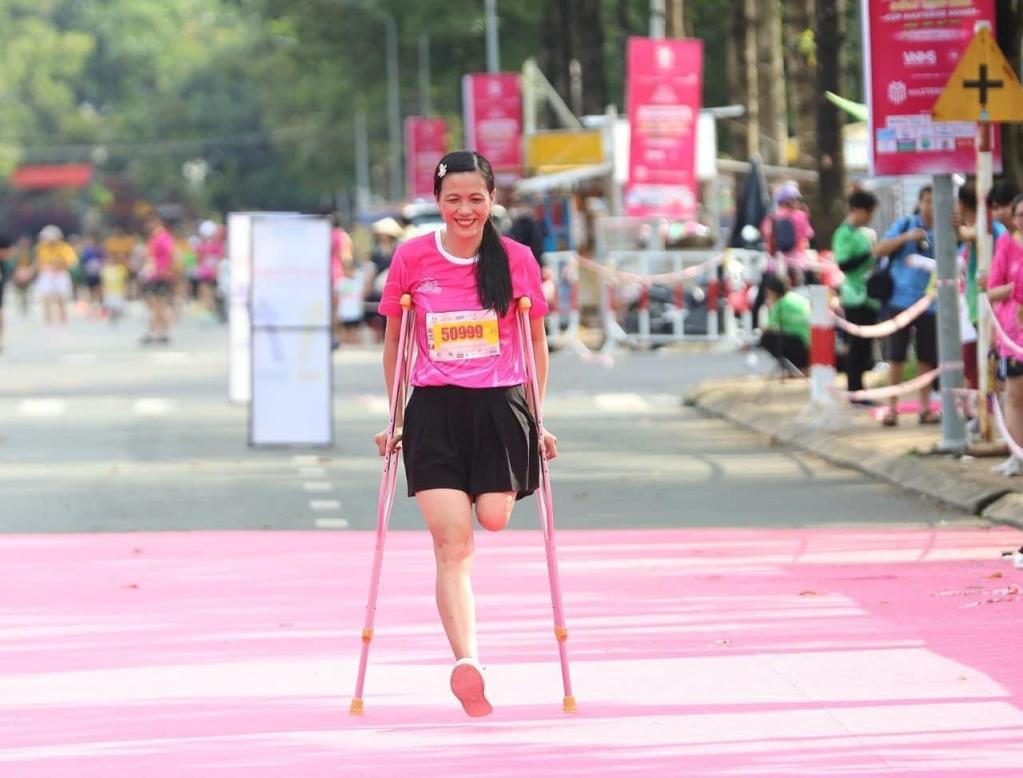
Story
28 December 2023
You Are Not Alone: Story of Lawyer Bui Dinh Ung
Edited by Luu Thu Huong.
“That night, my house was set on fire.
It was revenge – because I supported the family of a child who was raped.
They used a chain to lock the house’s gate, doused it with gasoline, then set it on fire. The fire broke out, but my family were still sleeping, not knowing what had just happened.
Luckily, the ward police patrolled that night and put it out for us. We were safe. But if they hadn’t been there, would we have died?
During my nearly 20 years working as a lawyer, I have supported many women who are survivors of violence, mainly through the Peace House and my own law office. The survivors who came to me were diverse. From the working class to the intellectuals, no one is exempted. Many of them were beaten; others were mentally abused to the point where they broke down and could not sleep.
In most cases, I don’t charge these women money. Supporting them is my duty, my responsibility as a lawyer. But you know, sometimes it’s dangerous. For example, when the other party is very aggressive or holds power, I worry that I wouldn’t even be able to protect myself and my family, let alone my client. No one will care if I die anyway.
But I’m still here, to this day. My conscience forces me. If the survivors didn’t come to me, where would they go? How would they get help? I have been supporting lots of domestic violence cases – to the point where new clients thought I was a family lawyer, haha.
And believe it or not, my family never complain about my job even though it can put them in danger. My wife is a Buddhist – she tries to find and give kindness in life. All of my children are lawyers or preparing to become lawyers. We share the same belief – “To live is to give.”
Maybe I was chosen to be a lawyer. Many people after receiving support have recovered and taken back their lives. That means my work has some meaning to it, right?”.
– Lawyer Bùi Đình Ứng, Hà Nội Bar Association.
1 of 5
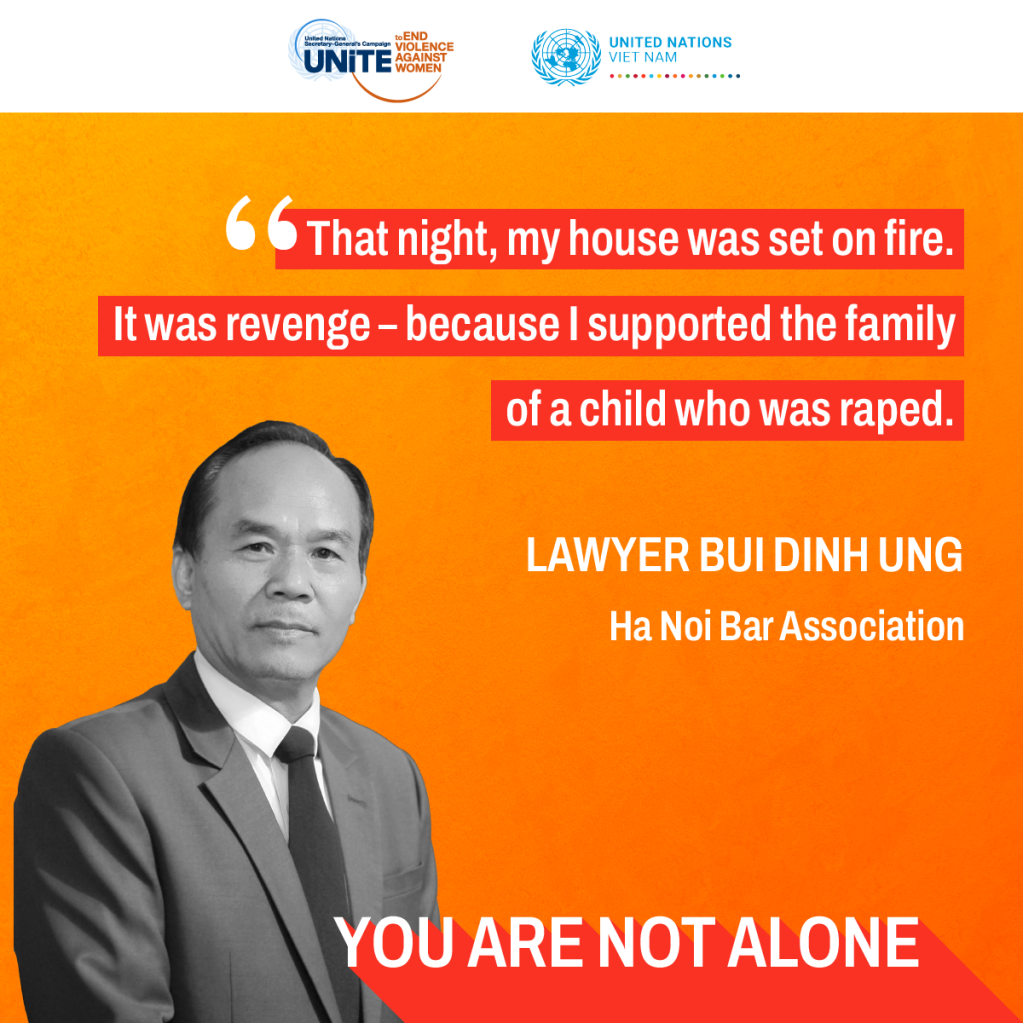
Story
28 November 2023
Community-led initiative to prevent HIV and gender-based violence among youth
“Part of my job is to do extra curriculum sessions on sexual and reproductive health at junior and secondary high schools.” Said Ms. Phan Thi Thu Trang, a worker at the reproductive health department of the central highland province of Lam Dong’s Centre for Disease Control (CDC). “But I and teachers were not able to help much with questions on LGBT[1] persons.”
“We were aware of cases of discrimination and even physical violence against boys who are seen as not masculine enough.” She continued. “All the teachers could do was impose disciplinary measures following the incidence. We haven’t been able to address the root cause of this discrimination and violence, which is the lack of knowledge on sexual orientation and gender identity and expression[2] among our young students.”
Ms. Trang is one participant at a provincial training workshop in Lam Dong province conducted by a group of community members coming from the Viet Nam Network of People Living with HIV (VNP+) and the Mekong Delta Network of Young Key Populations. The provincial information, education and communications (IEC) training focused on building knowledge and youth-targeted communication skills on comprehensive sexuality issues. The aim is to prevent HIV and gender-based violence (GBV) among youth.
The IEC training is an initiative of the community by community to fill the gap of comprehensive sexuality education in and out of school. The training workshop is technically supported by UNAIDS and UNFPA, and co-hosted by Ho Chi Minh City AIDS Association and provincial authorities working on health and youth issues, including provincial CDCs, the Youth Union and Department of Training and Education. In 2023, staff working directly with youth from relevant provincial authorities and in schools and colleges from the three provinces of An Giang, Dong Thap and Lam Dong received the first training. These three provinces were chosen because data shows that they have increasing HIV infections among young men who have sex with men (MSM).
“We know the linkage between SOGIE awareness on the one hand and HIV prevention awareness and uptake on the other hand. We also see the knowledge gap on this linkage in high schools and colleges. So in recent years we proactively approached some schools and colleges, first in Ho Chi Minh City and subsequently in adjacent provinces, where the need is high for IEC activities on these issues.” Said Dr. Nguyen Tan Thu one training facilitator for these training workshops, also a medical doctor who is member of VNP+ and of the LGBTIQ+ communities.
“It was very helpful that we were able to take reference of the latest UN guidance on CSE in and out of school to update and improve the training contents, thanks to technical support by UNAIDS and UNFPA.” Dr. Thu added.
The five-day training workshop was designed to be highly interactive and embracing learner-centred approach. The training participants got the opportunity to learn about and reflect upon SOGIE and CSE issues mainly through training facilitators who are young LGBTQI+ persons and through group work.
“This training was unconventional yet very interesting and eye opening, compared to all the training I attended previously. I did not expect that I would stay fully engaged throughout the entire 5-day training.” Said Mr. Hoang Van Ngung a high school teacher who is also in charge of Youth Union activities in his school in a rural district of Dong Thap province.
“I not only learned new knowledge, but also very importantly skills to develop and conduct an effective communication session for young people.” Said Ms. Trang of Lam Dong provincial CDC. “I got first-hand understanding of the LGBT community and now I am very sympathetic towards the community. The training allowed me to connect better with students. After one communication session I had conducted following this training, a male student voluntarily shared his experience of being stigmatized due to his specific gender orientation and expression.”
Post-training evaluation from the three workshops show that all training participants had positive feedback on both training contents and training methodology, with special appreciation for the opportunity to engage with representatives of the young key populations, including young gay men and transgender women who are providing HIV prevention services for their own communities.
“Community leadership is key for an effective HIV response. Communities know best the needs of their peers and how to reach them, enroll them in HIV services and provide follow-up support to keep them on HIV treatment for their good health but also for the virus not to transmit further.” Said Mr. Quinten Lataire, UNAIDS Country Director a.i.
“We need to provide more support for communities and an enabling environment for stronger community-led responses so Viet Nam can achieve its national goal of ending AIDS by 2030.” Added Mr. Lataire.
[1] LGBT persons include lesbian, gay, bi-sexual and transgender persons
[2] SOGIE is the abbreviation for sexual orientation, gender identity and expression
1 of 5
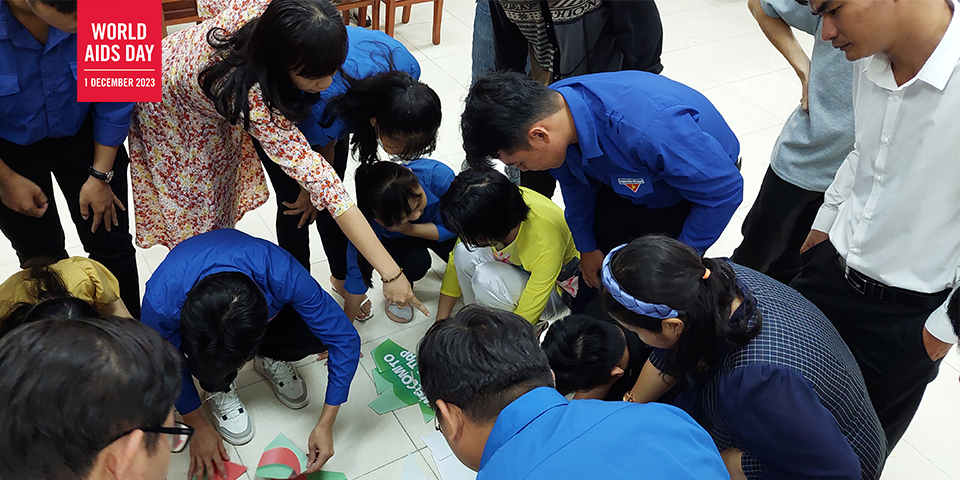
Story
28 November 2023
Women affected by HIV striving together for a better life
“She was diagnosed with HIV at the age of sixty and very ashamed. She did not want to let her children know and to enroll in treatment. I had to come talking to her in private for several times to change her mind and get her on anti-retroviral medicines.” Said Ms Thanh* of a self-help group of women living with and affected by HIV in Ha Noi city.
“A female sex worker living with HIV who is client of our self-help group had symptoms of sexually transmitted infection (STI) but she kept delaying a visit to the doctor. She only came to us for help when she could not work anymore. And even then, she attempted to drop out of her STI treatment saying it took too long. Many sisters especially in the mountainous areas are like that, lacking awareness to take care of their sexual and reproductive health.” Said Ms Hoai* from Thai Nguyen province.
“One child living with HIV in my province was denied enrolment in primary school. Our self-help group had to approach the school management and relevant authorities to advocate for the rights of this child. Stigma related to HIV still persists and we have to continue raising awareness on HIV, not only focusing on health facilities but also other sectors.” Said Ms. Van* from Bac Ninh province.
Many stories of how women living with and affected by HIV have been helping each other to live a healthier, more fulfilled life were shared at a networking event for women living with and affected by HIV, jointly supported by UNAIDS and UN Women in commemoration of the 2023 World AIDS Day. More than 90 women representing women-led organizations of women living with and affected by HIV from all regions across Viet Nam attended.
The event combined women’s networking with two presentations. The first one was on the existing comprehensive healthcare service package for women living with HIV by the Viet Nam Authority for HIV/AIDS Control (VAAC) and the second one on small credit mechanism for vulnerable women by the Viet Nam Women’s Union. Representatives from women-led organizations also discussed in depth the main findings from a rapid assessment of the needs and capacity of the Viet Nam Network of Women Living with HIV (VNW+) as well as VNW+ engagement in decision making platforms. The assessment was conducted earlier in 2023 by VNW+ with support from the International Community of Women Living with HIV (ICWAP) and UNAIDS Regional Support Team for Asia and the Pacific.
The main areas of need that emerged from that discussion include healthcare for HIV, STIs, cervical cancer and mental health; sustainable livelihood and income generation; addressing discrimination and gender-based violence; and, enhancing the capacity for women living with and affected by HIV and their networks. The participants also came up with recommendations for solutions and actions in the intermediate and longer term.
“Only at this event, I learned of the existence of the TYM** small credit funds for vulnerable women organized by Women’s Union. I wished I have known about TYM earlier and I hope TYM will expand beyond the current 13 provinces so more women in need can get help.”
“We need not only the small credit, but it’s also more important to have orientation for suitable occupation/business that will differ across geographical regions and the profile of women’s group. We also need the skills to effectively manage the funds so it will multiple and in turn can benefit more women.”
Such comments were echoed by many women during the in-depth group discussion.
Addressing VNW+, Ms Caroline Nyamayemombe, acting Head of UN Women in Viet Nam, emphasized the significance of having this networking event on the eve of World AIDS Day and the 16 Days campaign for ending all forms of violence against women.
“People living with HIV including women living with HIV need to have equal chances to access health care and treatment services, resources and opportunities for livelihood for them to live healthy lives and make a contribution to Viet Nam’s development. We need to not only speak up about women’s issues and struggles but also about what women have been able to do for each other and women’s leadership. To address women’s issues we need to work collectively and with innovative partnerships across sectors and organizations. Let us ensure we create opportunities for WLHIV in all their diversities to participate at all levels. UN agencies will be with you on this.”
*Not their real names
**TYM: Abbreviation of the name of a small credit funds for vulnerable women established and operated by Viet Nam Women’s Union
1 of 5
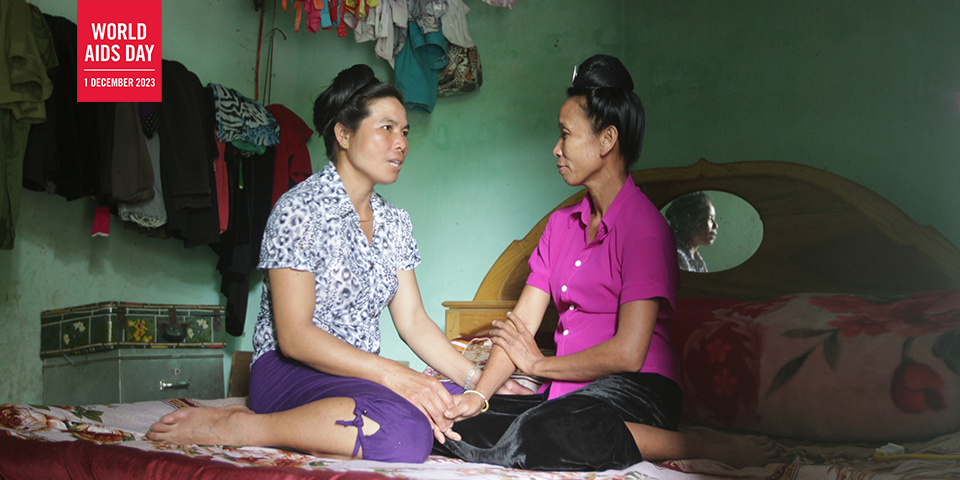
Story
28 December 2023
You Are Not Alone: Story of Linh, a social worker
Written by Nguyen Ngoc Tram.
"After graduating from university, I had thought that becoming a social worker also meant becoming a hero. But now, I don't think so anymore."
That was Linh's confession, the program officer for the Center for Women and Development's Peace House initiative, where women and children who suffered from domestic abuse, sexual abuse or human trafficking find help. From a call centre employee, she became a social service worker who provided direct assistance and is now a program officer. From 2021 to 2023, Linh and her colleagues have assisted more than 115 victims of human trafficking through the Tackling Human Trafficking programme, which IOM and the UK Home Office fund.
Linh said everyone faces the risk of being trafficked. At the Peace House, most women and girls have been bought and sold for labour and sexual exploitation. Most clients have challenging life circumstances, like discrimination from their community or domestic abuse, so upon return, they have incurred severe relational trauma. This is why the most challenging part of her job is building trust so the clients accept help while maintaining a professional demeanour to prevent retraumatizing the beneficiaries.
"There are moments where I feel powerless, especially when the client decides not to receive assistance or when they don't follow what I think is the best course of action. When that happens, I doubt my abilities and even ask myself: 'Am I the best fit for this job?'. There are also moments when the workload is too huge, and I am overwhelmed.
In close to four years of working at the Peace House, one of Linh's most memorable experiences was assisting four infants who had been trafficked. The eldest was 15 days old, and the smallest was only seven days old.
"We joked that despite not having had the chance to be mothers, we already know how to care for babies!"
Linh smiled brightly and shared that some of the children at the centre had been reunited with their mothers. CWD continues to provide psychological and financial support so that the mother can believe in herself and continue raising the baby.
"The Peace House is my second home!"-- were the precious words of a child who had returned home, which she keeps close to her heart. Linh suddenly realized: "I don't need to be a hero. I just need to be a solid shoulder to help the beneficiaries get through a rough patch in their life."
1 of 5
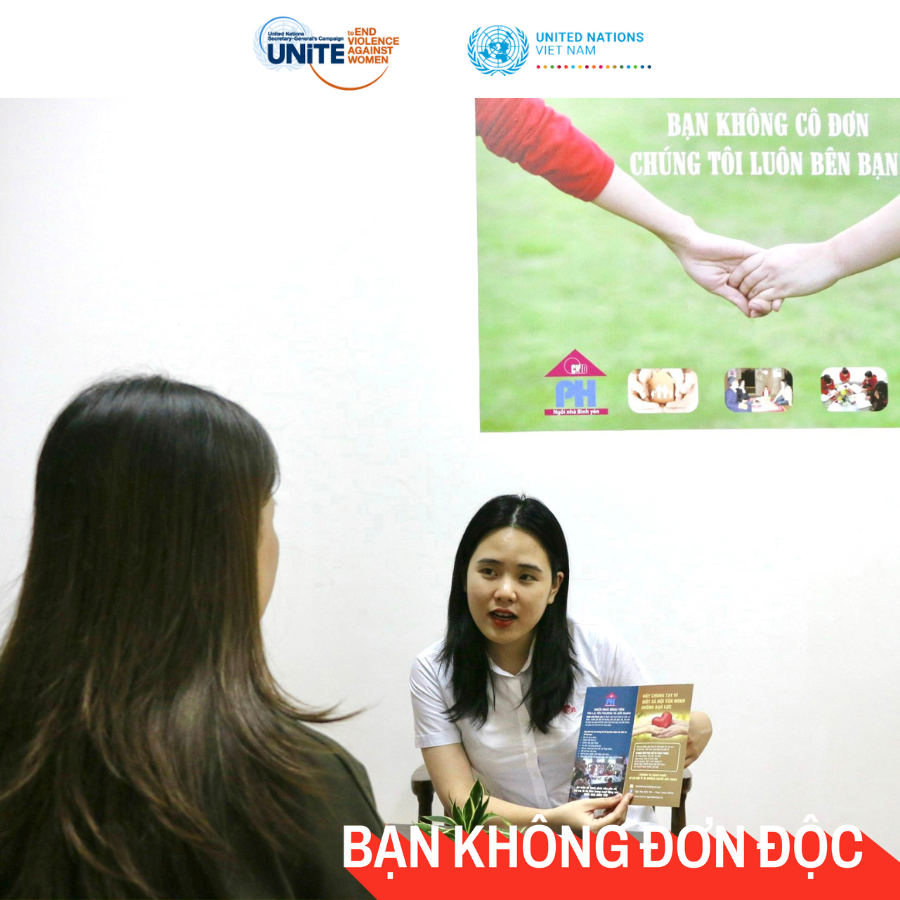
Press Release
24 July 2024
Improving the awareness and capacity for women and girls in responding to challenges in cyberspace
The workshop discussed cyber threats toward women and girls and equipped them with the knowledge and resilience needed to effectively navigate and respond to these cyber threats.This workshop also marks the start of implementing Viet Nam's first National Action Plan (NAP) on Women, Peace, and Security (WPS). One of the tasks and solutions identifies by the NAP is to “Enhance the effectiveness of prevention and response to gender-based violence (including technology-facilitated violence), meet specific needs, and promote meaningful participation of women in addressing war consequences, and in the prevention, control, handling, and response to incidents, disasters, and non-traditional security challenges.” The workshop took the lead in implementing activity number II.2.e of the NAP: "Raise awareness and capacity for women and girls in responding to cyberspace challenges."The workshop was attended by leaders from the Department of Cyber Security and High-Tech Crime Prevention, the Party and Political Work Department, the Ninh Bình Provincial Police, representatives from functional units of MPS, the Central Vietnam Women's Union, MPS’s Women's Union, and representatives from 24 Northern provinces and various related departments.Notably, experts from the Department of Cybersecurity and High-Tech Crime Prevention, MPS’s Women's Union and UN Women also engaged in discussions with students, teachers, and staff of Luong Van Tuy High School in Ninh Bình, encouraging critical dialogue on these urgent issues.“The digital ecosystem grows, so do the challenges it presents. The rise of cybercrime, cyberattacks, and cyber harassments and violence poses a constant threat to individuals, organizations, and even the peace and stability of nations. The need to ensure the protection of vulnerable groups, especially women and girls, against those security issues is also becoming more urgent and demanding”. Said Ms. Gaelle Demolis, Governance, Peace and Security Policy and Programme Specialist, UN Women Regional Office, Asia and the Pacific. Lieutenant Colonel Trieu Manh Tung, Deputy Director of the Department of Cyber Security and High-Tech Crime Prevention and Control - Ministry of Public Security, assessed: The workshop is one of the practical actions in the Ministry of Public Security's Plan to advocate and implement the "Preventing and combating criminal activities in cyberspace" campaign under the direction of the Prime Minister on mobilizing the combined strength of the entire political system, in all sectors, branches, levels, organizations, businesses, and with all people to fight against cybercrimes. The workshop facilitates a dialogue between leaders, cybersecurity experts, party committee leaders, local authorities, Women's Union officials at all levels and advocates. It raises awareness and capacity for women and girls to respond to cyber challenges, and also build and replicate good models and practices in supporting women to respond to challenges in cyberspace. Major General Ngo Hoai Thu, Deputy Director of the Department of Party and Political Work - Ministry of Public Security, and Head of the Women's Department, believes that with the continued advocacy and practical guidance from Vietnam Women’s Union members, the impact and effectiveness of this workshop will be extended and widely spread, especially among students. For media inquiries and further information, please contact:Ms. Hoang ThaoCommunications and Advocacy Analyst, UN Women Viet Namhoang.thao@unwomen.org
1 of 5
Press Release
22 April 2024
UNIDO in collaboration with SECO and MARD organized the Inception workshop of the project GQSP Viet Nam - Phase 2 “Increasing standard and quality compliance capacity of the Vietnam’s tropical fruit value chains”
UNIDO in cooperation with the Ministry of Agriculture and Rural Development (MARD) implemented the GQSP Viet Nam Phase 1 (2020-2023) focusing on “Increasing quality and standards compliance capacity of Mango and Pomelo value chains in Mekong River Delta”, and achieved significant outcomes contributing to the fruit export record performance in 2023. The Phase 2 (2023-2026) will expand the learnings to a wider tropical fruit industry following logical progression. The objective of the second phase is enhanced competitiveness and sustainability of Vietnamese tropical fruit exports through innovation, diversification, quality improvement, and standards compliance that meet modern market requirements. It will focus on three key intervention areas: Enhancing Quality Infrastructure, Strengthening SMEs' Compliance with Standards, and Culture for Quality. In the opening remarks, Ms. Le Thi Thanh Thao, UNIDO Country Representative in Viet Nam said “We will expand technical support activities for mango, pomelo, durian and passion fruit value chains in the Mekong River Delta and the Central Highlands provinces and continue cooperating with the related partners to work together to gradually i) create a favorable policy environment, raise awareness, and enhance quality culture; ii) improve quality infrastructure services to help small and medium enterprises comply with international standards; iii) enhance the capacity of small and medium enterprises to comply with those standards. These will help Vietnam's tropical fruit industry to be able to better meet the requirements of many different export markets and take advantage of existing opportunities, thereby improving the economic efficiency of the country. Ms. Bachmann Sibylle, Head of Cooperation, Swiss Embassy in Vietnam said “The partnership between UNIDO and MARD has been instrumental in enhancing quality standards within the tropical fruit industry because this phase expands our horizons to encompass the broader tropical fruit industry. We all recognize the crucial role of multi-stakeholder dialogue in shaping Quality and Standards policies for Vietnam’s Tropical Fruit Value Chains. I would like to call for a stronger and more strategic public-private dialogues to foster policies that elevate Vietnam’s tropical fruit industry while ensuring quality, safety, and market relevance.” Mr. Pham Anh Tuan, Director General of the Viet Nam Institute of Agriculture Engineering and Post Harvest Technology shared that “The fruit and vegetable sectors reached a record export turnover of 5.69 billion USD in 2023, an increase of 69.2% compared to 2022 and became the highest growth export industry. Fruit and Vegetable are key products accounting for 20% of the total agricultural export turnover. Enhancing processing and reducing post-harvest losses are sustainable solutions to promote fruit and vegetable exports, as well as reduce logistics costs.” The Ministry of Agriculture and Rural Development sets a goal in its fruit sector development strategy that the country's fruit tree area will reach 1.2 million hectares with an output of 14 million tons and the export revenue will reach over 5 billion US dollars by 2025 and 6.5 billion US dollars by 2030. The strategy also identifies 14 key fruits including dragon fruit, mango, banana, lychee, longan, orange, grapefruit, pineapple, rambutan, durian, jackfruit, passion fruit, avocado, custard apple.For further information, please contact:Ms. Hoang Mai Van AnhProject CoordinatorPhone: +84 979 528 798Email: v.hoang-mai@unido.org
1 of 5
Press Release
05 April 2024
Đề cao cảnh giác với chủng cúm gia cầm độc lực cao A (H5N1)
Virut cúm A (H5N1) nhánh 2.3.4.4b đã lan rộng trên toàn thế giới kể từ năm 2021. Các loại virut cúm gia cầm A/H5 - H5N2, H5N4, H5N5, H5N6 và H5N8 đều được phát hiện lẻ tẻ ở gia cầm hoặc chim hoang dã. Từ tháng 12/2023 đến tháng 2/2024, ít nhất 646 ổ dịch CGC độc lực cao đã được báo cáo tại 5 khu vực địa lý do H5N1 (610) gây ra. Ở châu Á, một số nhánh virut cúm A tiếp tục lây lan bao gồm (H5N1) 2.3.4.4b, 2.3.2.1c và các chủng khác, có thể dẫn đến việc tái tổ hợp và sự xuất hiện của virus với các đặc điểm mới. Một loại virus cúm A (H5N1) mới đã được phát hiện trên khắp Tiểu vùng sông Mekong mở rộng (TVSMKMR), gây bệnh trên cả người và gia cầm kể từ giữa năm 2022. Virus này chứa các protein bề mặt từ tuýp 2.3.2.1c đang lưu hành ở khu vực này, nhưng các gen bên trong lại bắt nguồn từ một nhánh virus xuất hiện gần đây hơn là 2.3.4.4b. Việc phát sinh và lây lan vi-rút cúm A (H5N1) tái tổ hợp này vào TVSMKMR gây ra rủi ro đáng kể đối với sức khỏe động vật và con người, dựa trên những tác động lịch sử của các đợt bùng phát CGC trong khu vực. Hơn nữa, việc tái tổ hợp này không chỉ cho thấy khả năng thích ứng của virus mà còn hiện hữu nguy cơ về sự xuất hiện của các chủng mới, có độc lực cao hơn.
Tại Việt Nam, Cúm gia cầm độc lực cao (CGC độc lực cao- H5N1) mặc dù với các đợt bùng phát lẻ tẻ nhưng virus vẫn tồn tại dai dẳng ở gia cầm. Giám sát chủ động trên toàn quốc cho thấy sự lây lan rộng rãi của vi-rút CGC độc lực cao A/H5 trong những năm gần đây. Tiêm vắc-xin phòng CGC độc lực cao là một chiến lược quan trọng trong nỗ lực kiểm soát CGC độc lực cao của Việt Nam. Kiểm tra phát sinh loài virus thể độc lực cao A(H5N1) được lấy mẫu từ các chợ gia cầm sống và các đợt bùng phát từ tháng 1/2022 đến tháng 12/2023 cho thấy cả hai nhánh 2.3.2.1c và 2.3.4.4b tiếp tục được lưu hành tại Việt Nam. Nhánh 2.3.2.1c chủ yếu lưu hành ở miền Nam Việt Nam, trong khi nhánh 2.3.4.4b được tìm thấy trên toàn quốc. Một số mẫu virus được phát hiện tại các chợ gia cầm sống ở các tỉnh phía Nam như Sóc Trăng và Vĩnh Long trong năm 2023 có biểu hiện tái tổ hợp gen giữa các nhánh 2.3.2.1c và 2.3.4.4b, mặc dù không phát hiện sự thay thế PB2-E627K.
Trong số các bệnh truyền lây từ động vật sang người, cúm gia cầm là một trong năm bệnh truyền nhiễm ưu tiên theo Thông tư liên tịch số 16/TTLT-BYT-BNNPTNT-2013. Kể từ năm 2003, 129 trường hợp nhiễm CGC độc lực cao A (H5N1) ở người, trong đó có 65 trường hợp tử vong đã được báo cáo ở Việt Nam. Trường hợp mắc cúm gia cầm A/H5 gần đây nhất được báo cáo vào tháng 10/2022 tại tỉnh Phú Thọ, và một trường hợp tử vong khác do cúm gia cầm A (H5N1) được thông báo vào tháng 3/2024 tại tỉnh Khánh Hòa, miền Trung Việt Nam.
TS Nguyễn Văn Long, Cục trưởng Cục Thú y, chia sẻ hành động của Chính phủ Việt Nam "Bộ Nông nghiệp và Phát triển nông thôn đã kiến nghị UBND các tỉnh, thành phố nghiêm túc thực hiện đầy đủ các biện pháp phòng chống dịch theo chỉ đạo của Thủ tướng Chính phủ, Bộ Nông nghiệp và Phát triển nông thôn. Đồng thời, chỉ đạo chính quyền địa phương huy động nguồn lực, sự tham gia của các sở, ngành, đoàn thể, tổ chức chính trị - xã hội để bố trí kinh phí, nhân lực để thực hiện các hoạt động phòng, chống dịch nhằm bảo vệ sức khỏe nhân dân, bảo vệ đàn vật nuôi, bảo đảm nguồn cung cấp thức ăn gia cầm an toàn, đồng thời thúc đẩy xuất khẩu và sản phẩm gia cầm".
FAO đang theo dõi tình hình thông qua mạng lưới chuyên gia khoa học chung của FAO-WOAH (Tổ chức Thú y Thế Giới) về cúm động vật (OFFLU) và phối hợp với các đối tác khác. Với sự hỗ trợ tài chính từ USAID và các đối tác khác, FAO sẽ tiếp tục cung cấp hỗ trợ kỹ thuật cho công tác chuẩn bị, phòng ngừa và ứng phó với cúm A (H5N1) tại Việt Nam." Tiến sĩ Rémi Nono Womdim, Trưởng đại diện FAO tại Việt Nam cho biết.Cục Thú Y và FAO Việt Nam khuyến nghị các hành vi sau:Đối với người chăn nuôi gia cầmTăng cường các biện pháp an toàn sinh học tại khu vực chăn nuôi để giảm thiểu nguy cơ vi rút xâm nhập;Tuân thủ đúng lịch tiêm phòng và đảm bảo dinh dưỡng tốt cho sức khỏe đàn gia cầm;Báo cáo các trường hợp gia cầm chết bất thường cho trưởng thôn hoặc cơ quan thú y địa phương vàKhông cho phép khách vào khu vực chăn nuôi.Đối với những người buôn bán gia cầm và những người bán gia cầm tại chợChỉ thu mua gia cầm từ nguồn rõ ràng được và bán ở những khu vực được phépKhông bán gia cầm bên ngoài chợ;Luôn rửa tay bằng nước sạch và xà phòng sau khi tiếp xúc với gia cầm;Sử dụng giày dép riêng do các trang trại chăn nuôi gia cầm cung cấp khi bạn cần vào khu vực chăn nuôi;Luôn rửa sạch giày dép của bạn khi bạn rời chợ.Đối với bác sĩ thú y và những người tham gia vào công tác phòng chống dịch bệnh: luôn sử dụng đồ bảo hộ cá nhân khi tiếp xúc với gia cầm nhiễm hay nghi ngờ nhiễm bệnh để giảm thiểu nguy cơ bị lây bệnh.Đối với cộng đồngThường xuyên rửa tay trước khi chế biến thực phẩm và trong quá trình nấu ăn và sau khi tiếp xúc với động vật.Nấu chín kỹ thức ăn, đặc biệt là thịt, gia cầm và trứng.Rửa sạch và làm vệ sinh tất cả các bề mặt và dụng cụ được sử dụng để chế biến thực phẩm.Không ăn “tiết canh”, một món ăn của Việt Nam được làm từ tiết của vịt.Tránh tiếp xúc với động vật ốm hoặc chết.Nếu bạn đã tiếp xúc với gia cầm có khả năng bị nhiễm bệnh, hãy liên hệ với cơ sở y tế gần nhất khi bạn có các triệu chứng đường hô hấp.Báo cáo ngay khi thấy gia cầm ốm chết bất thường cho cơ quan thú y địa phương.Virus cúm A lây nhiễm vào đường hô hấp và đường tiêu hóa của chim khiến chim phát tán virus trong nước bọt, chất nhầy và phân của chúng. Virus cúm A cũng có thể lây nhiễm vào đường hô hấp của động vật có vú và gây nhiễm trùng toàn thân ở các mô cơ quan khác. Bệnh ở những người nhiễm vi-rút CGC độc lực cao A(H5N1) dao động từ nhẹ (ví dụ: triệu chứng hô hấp trên) đến bệnh nặng (ví dụ: viêm phổi, suy đa tạng) dẫn đến tử vong.Nguy cơ sức khỏe cộng đồng nói chung từ các vi-rút cúm được biết gần đây trong mối tương tác giữa người và động vật là không thay đổi và việc truyền vi-rút từ người sang người từ những trường hợp này hiện được coi là không dễ dàng. Mặc dù việc lây nhiễm ở người với các vi-rút từ động vật là không thường xuyên, nhưng không bất ngờ khi xảy ra trong mối tương tác người-động vật khi mà các virus này còn tồn tại ở động vật.
Kể từ tháng 12/2023, 5 trường hợp nhiễm virus cúm A(H5N1) ở người tại Campuchia đã được thông báo cho Tổ chức y tế thế giới (WHO). Các virus cúm A (H5N1) từ bốn trường hợp đầu tiên thuộc nhóm H5 (HA) 2.3.2.1c. Virus thuộc nhóm này đã được phát hiện ở gia cầm từ năm 2014 tại Campuchia trong giám sát theo chiều dọc được thực hiện trong lĩnh vực thú y.
Tại Việt Nam, Cúm gia cầm độc lực cao (CGC độc lực cao- H5N1) mặc dù với các đợt bùng phát lẻ tẻ nhưng virus vẫn tồn tại dai dẳng ở gia cầm. Giám sát chủ động trên toàn quốc cho thấy sự lây lan rộng rãi của vi-rút CGC độc lực cao A/H5 trong những năm gần đây. Tiêm vắc-xin phòng CGC độc lực cao là một chiến lược quan trọng trong nỗ lực kiểm soát CGC độc lực cao của Việt Nam. Kiểm tra phát sinh loài virus thể độc lực cao A(H5N1) được lấy mẫu từ các chợ gia cầm sống và các đợt bùng phát từ tháng 1/2022 đến tháng 12/2023 cho thấy cả hai nhánh 2.3.2.1c và 2.3.4.4b tiếp tục được lưu hành tại Việt Nam. Nhánh 2.3.2.1c chủ yếu lưu hành ở miền Nam Việt Nam, trong khi nhánh 2.3.4.4b được tìm thấy trên toàn quốc. Một số mẫu virus được phát hiện tại các chợ gia cầm sống ở các tỉnh phía Nam như Sóc Trăng và Vĩnh Long trong năm 2023 có biểu hiện tái tổ hợp gen giữa các nhánh 2.3.2.1c và 2.3.4.4b, mặc dù không phát hiện sự thay thế PB2-E627K.
Trong số các bệnh truyền lây từ động vật sang người, cúm gia cầm là một trong năm bệnh truyền nhiễm ưu tiên theo Thông tư liên tịch số 16/TTLT-BYT-BNNPTNT-2013. Kể từ năm 2003, 129 trường hợp nhiễm CGC độc lực cao A (H5N1) ở người, trong đó có 65 trường hợp tử vong đã được báo cáo ở Việt Nam. Trường hợp mắc cúm gia cầm A/H5 gần đây nhất được báo cáo vào tháng 10/2022 tại tỉnh Phú Thọ, và một trường hợp tử vong khác do cúm gia cầm A (H5N1) được thông báo vào tháng 3/2024 tại tỉnh Khánh Hòa, miền Trung Việt Nam.
TS Nguyễn Văn Long, Cục trưởng Cục Thú y, chia sẻ hành động của Chính phủ Việt Nam "Bộ Nông nghiệp và Phát triển nông thôn đã kiến nghị UBND các tỉnh, thành phố nghiêm túc thực hiện đầy đủ các biện pháp phòng chống dịch theo chỉ đạo của Thủ tướng Chính phủ, Bộ Nông nghiệp và Phát triển nông thôn. Đồng thời, chỉ đạo chính quyền địa phương huy động nguồn lực, sự tham gia của các sở, ngành, đoàn thể, tổ chức chính trị - xã hội để bố trí kinh phí, nhân lực để thực hiện các hoạt động phòng, chống dịch nhằm bảo vệ sức khỏe nhân dân, bảo vệ đàn vật nuôi, bảo đảm nguồn cung cấp thức ăn gia cầm an toàn, đồng thời thúc đẩy xuất khẩu và sản phẩm gia cầm".
FAO đang theo dõi tình hình thông qua mạng lưới chuyên gia khoa học chung của FAO-WOAH (Tổ chức Thú y Thế Giới) về cúm động vật (OFFLU) và phối hợp với các đối tác khác. Với sự hỗ trợ tài chính từ USAID và các đối tác khác, FAO sẽ tiếp tục cung cấp hỗ trợ kỹ thuật cho công tác chuẩn bị, phòng ngừa và ứng phó với cúm A (H5N1) tại Việt Nam." Tiến sĩ Rémi Nono Womdim, Trưởng đại diện FAO tại Việt Nam cho biết.Cục Thú Y và FAO Việt Nam khuyến nghị các hành vi sau:Đối với người chăn nuôi gia cầmTăng cường các biện pháp an toàn sinh học tại khu vực chăn nuôi để giảm thiểu nguy cơ vi rút xâm nhập;Tuân thủ đúng lịch tiêm phòng và đảm bảo dinh dưỡng tốt cho sức khỏe đàn gia cầm;Báo cáo các trường hợp gia cầm chết bất thường cho trưởng thôn hoặc cơ quan thú y địa phương vàKhông cho phép khách vào khu vực chăn nuôi.Đối với những người buôn bán gia cầm và những người bán gia cầm tại chợChỉ thu mua gia cầm từ nguồn rõ ràng được và bán ở những khu vực được phépKhông bán gia cầm bên ngoài chợ;Luôn rửa tay bằng nước sạch và xà phòng sau khi tiếp xúc với gia cầm;Sử dụng giày dép riêng do các trang trại chăn nuôi gia cầm cung cấp khi bạn cần vào khu vực chăn nuôi;Luôn rửa sạch giày dép của bạn khi bạn rời chợ.Đối với bác sĩ thú y và những người tham gia vào công tác phòng chống dịch bệnh: luôn sử dụng đồ bảo hộ cá nhân khi tiếp xúc với gia cầm nhiễm hay nghi ngờ nhiễm bệnh để giảm thiểu nguy cơ bị lây bệnh.Đối với cộng đồngThường xuyên rửa tay trước khi chế biến thực phẩm và trong quá trình nấu ăn và sau khi tiếp xúc với động vật.Nấu chín kỹ thức ăn, đặc biệt là thịt, gia cầm và trứng.Rửa sạch và làm vệ sinh tất cả các bề mặt và dụng cụ được sử dụng để chế biến thực phẩm.Không ăn “tiết canh”, một món ăn của Việt Nam được làm từ tiết của vịt.Tránh tiếp xúc với động vật ốm hoặc chết.Nếu bạn đã tiếp xúc với gia cầm có khả năng bị nhiễm bệnh, hãy liên hệ với cơ sở y tế gần nhất khi bạn có các triệu chứng đường hô hấp.Báo cáo ngay khi thấy gia cầm ốm chết bất thường cho cơ quan thú y địa phương.Virus cúm A lây nhiễm vào đường hô hấp và đường tiêu hóa của chim khiến chim phát tán virus trong nước bọt, chất nhầy và phân của chúng. Virus cúm A cũng có thể lây nhiễm vào đường hô hấp của động vật có vú và gây nhiễm trùng toàn thân ở các mô cơ quan khác. Bệnh ở những người nhiễm vi-rút CGC độc lực cao A(H5N1) dao động từ nhẹ (ví dụ: triệu chứng hô hấp trên) đến bệnh nặng (ví dụ: viêm phổi, suy đa tạng) dẫn đến tử vong.Nguy cơ sức khỏe cộng đồng nói chung từ các vi-rút cúm được biết gần đây trong mối tương tác giữa người và động vật là không thay đổi và việc truyền vi-rút từ người sang người từ những trường hợp này hiện được coi là không dễ dàng. Mặc dù việc lây nhiễm ở người với các vi-rút từ động vật là không thường xuyên, nhưng không bất ngờ khi xảy ra trong mối tương tác người-động vật khi mà các virus này còn tồn tại ở động vật.
Kể từ tháng 12/2023, 5 trường hợp nhiễm virus cúm A(H5N1) ở người tại Campuchia đã được thông báo cho Tổ chức y tế thế giới (WHO). Các virus cúm A (H5N1) từ bốn trường hợp đầu tiên thuộc nhóm H5 (HA) 2.3.2.1c. Virus thuộc nhóm này đã được phát hiện ở gia cầm từ năm 2014 tại Campuchia trong giám sát theo chiều dọc được thực hiện trong lĩnh vực thú y.
1 of 5
Press Release
06 November 2023
National Consultation Workshop in Viet Nam Marks a Key Milestone in the Development of the National Action Plan on Women, Peace, and Security
Recognizing the paramount importance of the Women, Peace, and Security agenda in the context of Viet Nam, the participants engaged in robust deliberations. Key topics on the agenda included the review and refinement of the draft NAP WPS, fostering efficient coordination throughout the development process, and securing necessary financing for the realization of the NAP WPS objectives.
The event symbolizes a significant step in Viet Nam's commitment to promoting gender equality, peace, and security. By bringing together diverse stakeholders and fostering collaboration, Viet Nam aims to address critical issues and establish a framework for a more inclusive, secure, and peaceful society.
The workshop stands as a strong testament to Viet Nam's dedication to realizing the principles of the Women, Peace, and Security Agenda that had been established by the United Nations Security Council in October 2000 through the Resolution 1325 (UNSCR 1325) and its subsequent Resolutions on women, peace, and security.
Speaking at the workshop, United Nations Resident Coordinator in Viet Nam Mrs. Pauline Tamesis said “The NAP being discussed today represents a significant step towards a more inclusive, equal, and secure world for Vietnamese women and girls. It underscores the importance of women's participation in the realms of foreign politics, defense, security, and their vital role in preserving international peace and security. On this journey, let us remember that we are not just shaping a document, but we are shaping the future of women and girls in Viet Nam and the peace and security of this nation”.
NAP WPS will become a blueprint for Viet Nam in localizing the WPS agenda into Viet Nam’s unique culture and context encompassing the four pillars of WPS agenda - prevention, protection, participation and relief and recovery – and the emerging security threats such as climate change, disasters, cybersecurity, and pandemics.
The National Drafting Committee Members comprised of representatives from MOFA, MOLISA, MOD, MPS, MOH, MONRE, MPI, MOIC, MARD, MOCST, MOJ, CEMA, NA, VWU and YU. The Committee and the leading ministry, MOFA expect to submit the final draft to the Prime Minister’s Office for review in December 2023.
- End
For media inquiries and further information, please contact:
Ms. Hoang Thao
Communications and Advocacy Analyst, UN Women Viet Nam
hoang.thao@unwomen.org
Ms. Yoomi Jun
Communications Officer, UN Women Indonesia
yoomi.jun@unwomen.org
1 of 5
Press Release
23 October 2023
IFAD and Viet Nam celebrate 30 years of partnership to improve rural lives
IFAD Associate Vice President, Corporate Services Department, Guoqi Wu, was also present at the event. "IFAD's commitment to Viet Nam extends beyond economic development,” he said. “Given Viet Nam’s vulnerability to climate change, we are prioritizing climate adaptation for small-scale farmers and engaging communities to adopt climate-informed approaches while equipping them with the necessary tools and knowledge. Our work has empowered rural women and young people, including those from ethnic minorities, fostering their active participation in sustainable development.”
Over the last 30 years, IFAD has supported over 16 projects in Viet Nam, mobilizing more than US $788 million in financing to improve the lives of 735,000-plus families. These projects focus on activities that have the greatest impact on residual poverty in rural areas, reflecting the emerging challenges and opportunities of a lower-middle-income country, a changing economic structure and growing urbanization.
"Our partnership with Viet Nam has been characterized by shared goals, mutual trust, and impactful interventions,” said Ambrosio Barros, IFAD Country Director for Viet Nam. “We’ve focused on market-led innovations, institutional and policy reform, and building capacities of local governments, farmers and rural people. We’re proud to have made significant strides in reducing poverty and enhancing livelihoods,” he added.
IFAD’s support has helped generate new jobs, increased incomes, and facilitated the formation of saving and credit groups, promoting financial inclusion and economic empowerment. Going forward, IFAD’s partnership with Viet Nam will focus on addressing the impacts of climate change and ensuring the full participation of marginalized groups, Wu noted. IFAD will continue on this journey with Viet Nam, leveraging and deepening this partnership to build a more equitable and sustainable future, leaving no one behind.
Representatives from various ministries of the government, the United Nations, international organizations, and development partners attended the event.
Currently, IFAD has invested US $86 million in Viet Nam, distributed across two ongoing projects implemented by Commercial Smallholder Support Project in Bac Kan and Cao Bang (CSSP) and Climate Smart Agricultural Value Chain Development in Ben Tre and Tra Vinh Provinces (CSAT).
Read more about IFAD’s work in Viet Nam
For media inquiries, please contact:
Nguyen Thu Hoai
IFAD Viet Nam
Email: n.thuhoai@ifad.org
Phone: 0888697278
Follow us on X/Twitter: @IFADSouthAsia and LinkedIn: IFAD Asia
Press Release No.: IFAD/104/2023
IFAD is an international financial institution and a United Nations specialized agency. Based in Rome, Italy – the United Nations food and agriculture hub – IFAD invests in rural people, empowering them to reduce poverty, increase food security, improve nutrition, and strengthen resilience. Since 1978, we have provided more than USD 24 billion in grants and low-interest loans to fund projects in developing countries.
1 of 5
Latest Resources
1 / 11
Resources
02 March 2023
Resources
07 February 2023
Resources
07 February 2023
1 / 11

